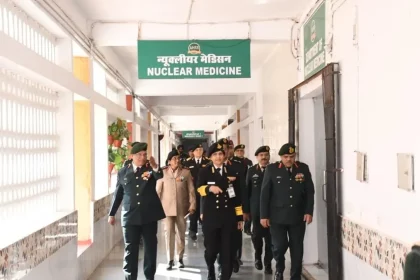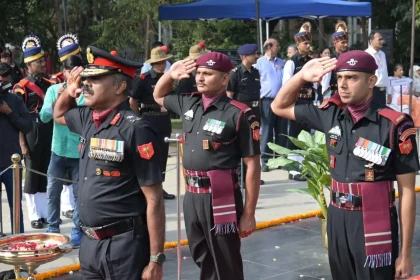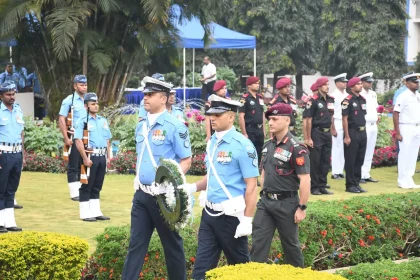Surgeon Vice Admiral Arti Sarin Reviews Preparedness at Army Hospital (R&R)
DGAFMS Lauds Army Hospital (R&R) for Patient-Centric, Digitally Enabled Care and Clinical Excellence.
Vice Admiral Sanjay Bhalla Reviews Training Facilities at INS Vishwakarma
Senior Naval Leader Underscores Modern Training, Infrastructure Upgrades and Personnel Well-Being at Key Technical Establishment.
Ukraine Conducts First-Ever Underwater Drone Strike on Russian Submarine
Ukraine Executes Historic Underwater Drone Strike, Disabling Russian Kilo-Class Submarine at Novorossiysk Port.
Southern Command Observes Vijay Diwas 2025 with Tri-Service Tributes
Southern Command Pays Homage to 1971 War Heroes with Tri-Service Wreath-Laying Ceremonies on Vijay Diwas 2025.
IAF Training Command Observes Vijay Diwas 2025 to Honour 1971 War Heroes
HQTC Marks Vijay Diwas with Solemn Tributes to 1971 War Heroes and Fallen Soldiers.
Indian Navy Commissions First Indigenous Diving Support Craft DSC A20 at Kochi
First of Five Indigenous Diving Support Crafts Commissioned, Strengthening Indian Navy’s Underwater Operational Capabilities.






